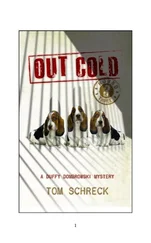Looking back on that moment, I imagine that most people would have stepped quietly back into the cover of the underbrush and quickly put as much distance as possible between themselves and the Skraeling hut. This would have been logical and sensible. Yet this thought never occurred to me. On the contrary, I knew with absolute certainty that I had to go forward. I knew, also, that no harm would come to me if I did. Later I was to come to understand that this sense of invulnerability mingled with curiosity and trust is a gift that I have naturally. I felt no fear or alarm. Instead a strange numbness ran right down through my legs, almost as if I could not feel my feet, and I felt I had no control over what my limbs were doing. I simply walked forward into the clearing, went across it to the entrance of the shelter, stooped down and pushed my way in.
As I straightened up inside the smoke-filled interior of the little lean-to, I found myself face to face with a small, thin man, who was flicking some sort of rattle steadily from side to side. It was this rattle which had made the rhythmic chinking sound I heard. The man must have been about sixty years old, though it was difficult to tell because he looked so different from any other human I had yet seen. He was no taller than me, and his narrow face was very brown and deeply lined, and framed with long, lank, black hair which hung down to his shoulders. He was dressed entirely in deerskin, from the jacket to the slippers on his feet. Above all he was very, very thin. His hands, his wrists where they emerged from the sleeves of his rough jacket, and his ankles were like sticks. He glanced up as I entered and the expression in his narrow brown eyes did not change as he looked straight into my face. It was almost as if he was expecting me, or he knew who I was. He gave me a single, long glance, then looked down again. He was staring down at the figure of another Skraeling, who was lying on a bed of branches and was obviously very ill. He too was dressed in animal skins and covered with a deerskin wrap. The man seemed barely conscious and was breathing erratically.
How long I stood there I have no recollection. All notion of time was absorbed into the hypnotic beat of the Skraeling rattle and I was completely relaxed. I too looked down at the invalid, and as I gazed at his recumbent body, something strange happened to my senses. It was as if I was looking through a series of thin veils arranged within the man's body and, if I concentrated hard enough, I could shift aside a veil and pass forward and see deeper and deeper inside, past his external form and into the man's interior. As each veil was passed, my vision became more strained until I could progress no further. By then I knew that I was seeing so far inside the sick Skraeling that I could distinguish the interior shape of his spirit. And that shape, his inner soul, was emitting a series of thin flickers, too light and frail to be sustained. At that moment I knew he was mortally ill. He was too sick to be saved and no one could help him. Nothing like this insight had ever happened to me before, and the impact of the premonition broke through my own inner calm. Like someone struggling to come awake from a deep sleep, I glanced around to try to grasp where I was, and I found myself looking into the eyes of the Skraeling with the rattle. Of course I did not know a single word of his language, but I knew why he was there. He was a doctor for his sick comrade, and he too had been peering into the invalid's soul. He had seen what I had seen. I shook my head. The Skraeling looked back at me quietly and I am sure he understood. Without any hurry I pushed my way out of the lean-to, then walked back across the clearing and away into the underbrush. I was confident that no one would follow me, that the Skraeling would not even mention my presence to his fellows, and that he and I shared something as close as any ties of tribe or race.
Nor did I tell Freydis, her husband, Thorvard, or anyone else in the camp about my encounter with the two Skraelings. There was no point in trying to explain it. They would have thought that I was hallucinating or, in view of what happened a month later, they would have seen me as a traitor who had failed to warn them that the Skraelings were closing in.
They came when the leaves on the trees had turned to the vivid reds and russets and yellows which herald the arrival of winter in those lands. Later we guessed that the Skraelings had needed to assemble their menfolk, who had dispersed to hunt and gather food for the winter, before they made their united effort to drive us away. Certainly the fleet of canoes which came paddling towards us that late autumn morning was twice the number of anything we had expected, though many of our more belligerent settlers had been waiting eagerly for the encounter. For weeks they had endlessly discussed their tactics and boasted how they would crush the Skraelings. So when the Skraeling canoes eventually approached the land, our main force rushed down to the beach and showed their red shields in defiance. For their part, the Skraelings stood up in their canoes and — as they had done the first time I ever saw them - they began to whirl their strange humming sticks through the air. Only now I noticed that they did not swing them with the sun as before, but in the opposite direction, and as they they whirled them faster and faster the air was again filled with a dreadful droning sound that seemed to work right inside our heads.
Our men were still on the edge of the surf, shouting insults and defiance, when the first Skraeling missiles struck. Once again the range of their dart throwers took our men unawares. Two grunted in surprise and slumped down so suddenly that their comrades turned round in puzzlement.
Unnerved, our men began to fall back. They retreated up the beach in disorder, leaving the corpses at the water's edge. We watched the Skraeling flotilla paddle right up to the beach unopposed and their warriors step ashore.
The mass of the Skraelings advanced up the beach towards us.
There must have been nearly eighty of them and they kept no particular order or discipline, but neither did our men, who were scampering back towards the settlement. What followed was a chaotic and deadly brawl, which I watched from the shelter of a dense willow thicket, where I had been sent by Freydis's husband Thorvard when the Skraeling boats first appeared. Earlier I had told Thorvard how the Skraelings had been terrified by the bellowing of our bull on my first visit to Vinland. Now Thorvard told me to run and catch one of the bulls we had brought with us and produce the animal as our secret weapon. But by the time I had brought the animal to the willow thicket, ready to drive it into the open, our forces were about to gain an even more spectacular advantage.
Our men were fleeing back along the bank of one of the small rivers leading up from the strand. Later they claimed that a second band of Skraelings had emerged from the forest and was blocking their line of retreat towards the settlement, though this was a fabrication. The real problem was that our men had no leadership or cohesion. Once again the Icelanders and Greenlanders were behaving as though they were complete strangers to one another, and neither group showed any sign of helping the other. In their panic-stricken haste men were tripping over and picking themselves up, then running onward and bumping into one another as they glanced over their shoulders to see if any more of the Skraeling darts were on their way, or if the Skraelings were pressing home the attack. At this point, when it seemed that our forces were beaten, we were saved by a berserk.
The term berserk has now such common currency that it is known to nations far beyond the Norse world. All agree that the word describes someone so brimming with fighting rage that he performs extraordinary deeds on the battlefield with no regard for his own safety. Some say that in his fury the berserker howls like a wolf before he attacks, others that he foams at the mouth and bites the rim of his shield, glares at his foe, snarls and shakes before he strikes. A true berserk scorns any notion of armour or
Читать дальше








